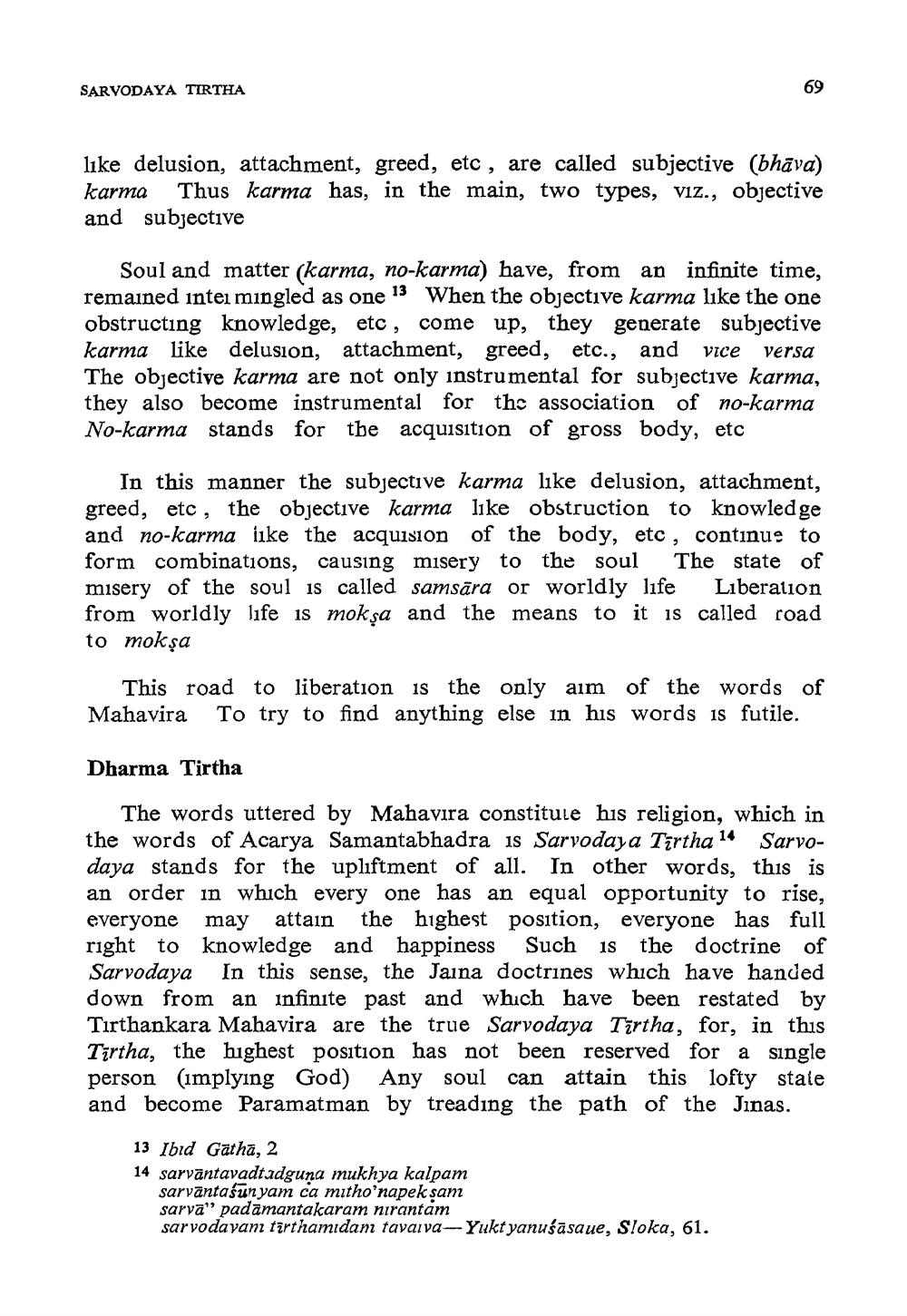________________
SARVODAYA TIRTHA
69
like delusion, attachment, greed, etc, are called subjective (bhava) karma Thus karma has, in the main, two types, viz., objective and subjective
soul and matter (karma, 13 When the objective kart subiective
Soul and matter (karma, no-karma) have, from an infinite time, remained intei mingled as one 13 When the objective karma like the one obstructing knowledge, etc, come up, they generate subjective karma like delusion, attachment, greed, etc., and vice versa The objective karma are not only instrumental for subjective karma, they also become instrumental for the association of no-karma No-karma stands for the acquisition of gross body, etc
In this manner the subjective karma like delusion, attachment, greed, etc, the objective karma like obstruction to knowledge and no-karma like the acquision of the body, etc, continue to form combinations, causing misery to the soul The state of misery of the soul is called samsāra or worldly life Liberation from worldly life is mokşa and the means to it is called road to mokşa
This road to liberation is the only aim of the words of Mahavira To try to find anything else in his words is futile.
Dharma Tirtha
The words uttered by Mahavira constitule his religion, which in the words of Acarya Samantabhadra is Sarvodaya Tirtha 14 Sarvodaya stands for the upliftment of all. In other words, this is an order in which every one has an equal opportunity to rise, everyone may attain the highest position, everyone has full right to knowledge and happiness Such is the doctrine of Sarvodaya In this sense, the Jaina doctrines which have handed down from an infinite past and which have been restated by Tirthankara Mahavira are the true Sarvodaya Tirtha, for, in this Tirtha, the highest position has not been reserved for a single person (implying God) Any soul can attain this lofty stale and become Paramatman by treading the path of the Jinas.
13 Ibid Gatha, 2 14 sarväntavadtadguna mukhya kalpam
sarväntasun yam ca mitho'napek şanı sarva'' padamantakaram nirantam sarvodayanı tarthamıdan tavaiva-Yukt yanuśāsaue, Sloka, 61.




